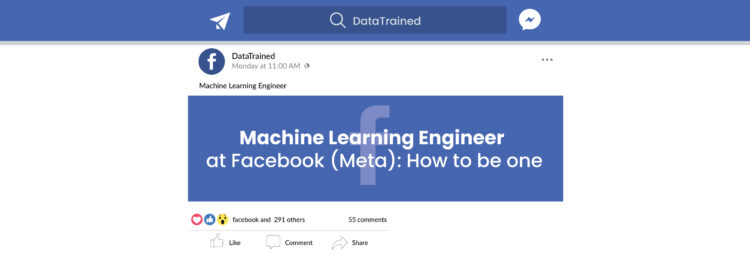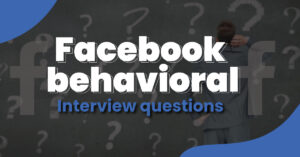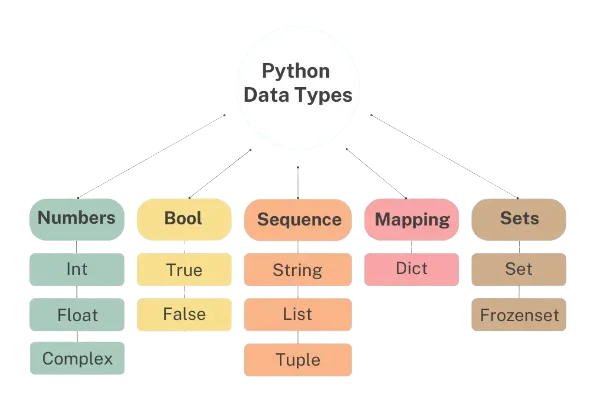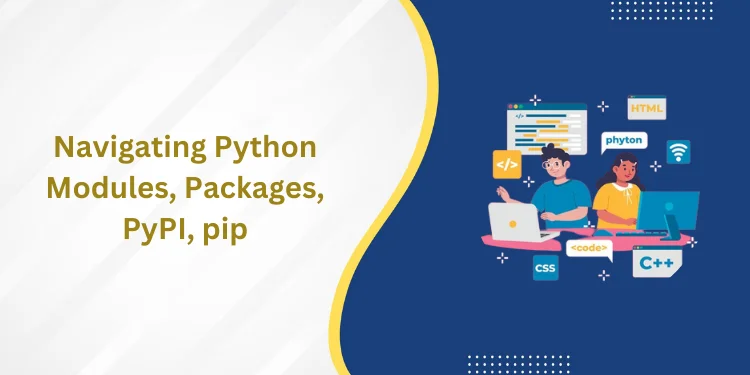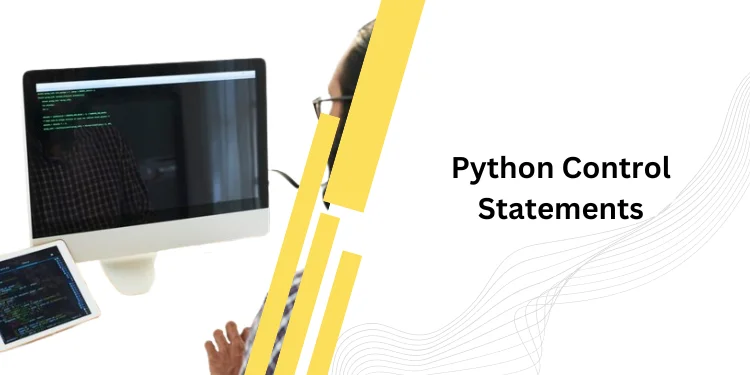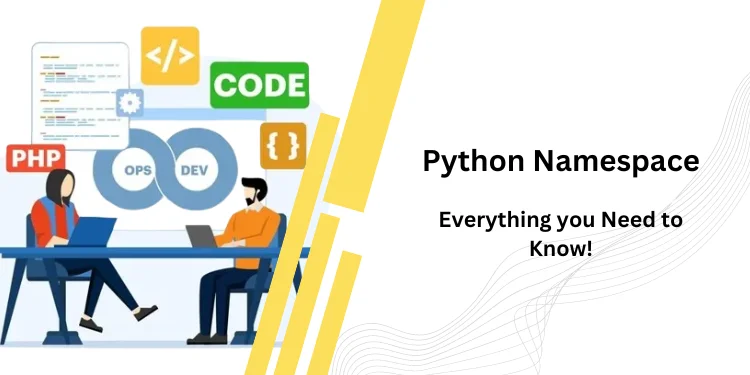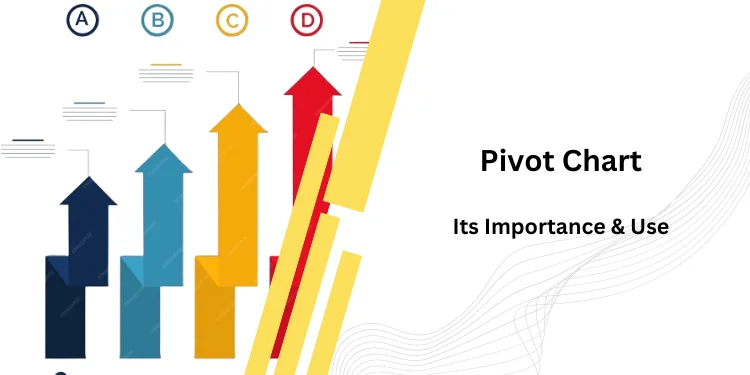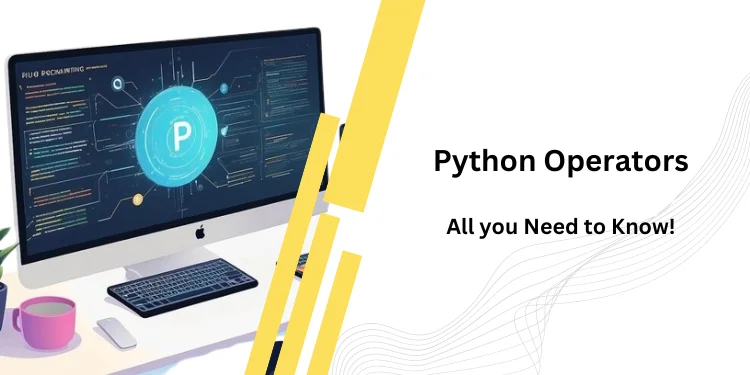Introduction to Facebook Machine Learning Engineer (Meta)
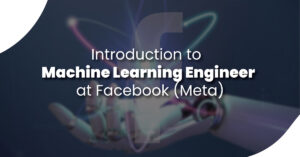
Everybody in the whole wide world knows what Facebook or Meta is. Facebook or Meta creates technologies that assist people in connecting, finding communities, and growing businesses. When Facebook first appeared in 2004, it revolutionized the way people communicated. Apps like Messenger, Instagram, and WhatsApp empower billions more people worldwide. Meta is now moving beyond 2D screens and into immersive experiences such as augmented and virtual reality to aid in the development of the next generation of social technology. People who choose to build their careers with us at Meta help shape a future that will take us beyond the constraints of screens, the limits of distance, and even the rules of physics.
Machine learning is a system that learns to perform complex tasks quickly and efficiently as it receives new data without being explicitly programmed. The estimated action rate and ad quality score used in the total value equation are generated by Facebook using machine learning.
ML engineers serve as a link between data scientists who specialize in statistical and model-building tasks and the development of machine learning and AI systems.
The machine learning engineer role requires the assessment, analysis, and organization of large amounts of data, as well as the execution of tests and the optimization of machine learning models and algorithms.
In more simple terms,
The primary goals of an ML engineer are to create machine learning models and to retrain systems as needed. The following are some common responsibilities for this role, depending on the organization:
- Creating ML systems.
- Developing and deploying machine learning algorithms and tools.
- Choosing appropriate data sets
- Choosing the best data representation methods.
- Detecting differences in data distribution that have an impact on model performance.
- Validating data quality.
- Data science prototypes are transformed and converted.
- Conducting statistical analysis
- Running machine learning experiments.
- Models are improved by using the results.
- When necessary, training and retraining systems are implemented.
- Machine learning libraries are being expanded.
- Creating machine learning apps based on client specifications.
Machine learning is a system that learns to perform complex tasks quickly and efficiently as it receives new data without being explicitly programmed. The estimated action rate and ad quality score used in the total value equation are generated by Facebook using machine learning.
Machine learning models predict a specific person’s likelihood of taking the advertiser’s desired action based on the business objective the advertiser selects for their ad, such as increasing visits to their website or driving purchases, to determine the estimated action rate. To accomplish this, Meta’s models take into account that person’s behavior on and off Facebook, as well as other factors such as ad content, time of day, and interactions between people and ads.
Things a person does while using Facebook apps, such as clicking on an ad or liking a post, are examples of Facebook behaviors that the models consider.
Things a person does outside of Facebook that businesses share with us via our Business Tools, such as visiting a website, purchasing a product, or installing an app, are examples of off-Facebook behaviors that the models consider.
Facebook machine learning engineer creates models consider feedback from people viewing or hiding the ad, as well as assessments of low-quality attributes (such as too much text in the ad’s image, sensationalist language, or engagement bait) to generate an ad’s quality score.
In the ad auction, the advertiser’s bid, estimated action rate, and ad quality score are combined to calculate the ad’s total value score.
Also Read: How to become a IBM Data Engineer
Qualifications and skills required to become a Facebook Machine Learning Engineer
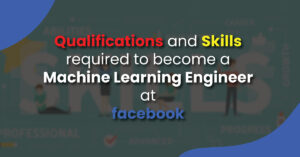
To become a Facebook machine learning engineer, one should have the following skills and qualifications:
- Advanced math and statistics skills, including linear algebra, calculus, and Bayesian statistics.
- A master’s degree in computer science, math, statistics, or a related field is required.
- Master’s degree in machine learning, neural networks, deep learning, or a field related to machine learning.
- Analytical, problem-solving, and teamwork abilities are required.
- abilities in software engineering
- Knowledge of data science.
- Python, Java, C++, C, R, and JavaScript are examples of coding and programming languages.
- Working knowledge of ML frameworks.
- Working knowledge of ML libraries and packages.
- Be familiar with data structures, data modelling, and software architecture.
- Understanding of computer architecture.
As a result, in order to be considered for a Facebook Machine Learning Engineer , you must have the following qualifications:
- A master’s degree in computer science, information technology, or a related field
- Knowledge of object-oriented programming languages as well as big data analytics
- Must be familiar with machine learning frameworks.
- Lead Machine Learning Engineer positions typically necessitate at least ten years of industry experience.
Facebook Machine Learning Engineer Interview Process
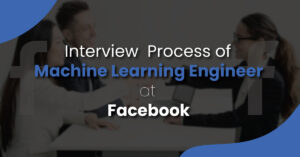
Facebook Machine Learning Engineer are hired through a holistic evaluation process. Two coding interviews, a system design interview, a behavioral interview, and a machine learning interview are all part of the process.
The coding interview for Facebook machine learning engineer appears to be difficult, and you may be given a home project assignment in some cases. The nice thing about Facebook is that they provide helpful resources for preparation prior to the interview process via their recruiting portal.
Here are the stages of Facebook Machine Learning Engineer Interview Process: < /h3>
Applications and recommendations for Facebook Machine Learning Engineer
The first step is to get a Facebook machine learning engineer interview in the first place. Because the interviews are the main focus of this guide, we’ll keep this section brief. You can apply directly to Facebook, or a recruiter may contact you through LinkedIn (or similar). In either case, having a quality (and up-to-date) resume that is tailored to Facebook machine learning engineer positions, and specifically to Facebook, is advantageous.
Internal employee referrals to the Facebook recruiting team can also be beneficial. This may not be possible, but if you know someone who works at Facebook, you may be able to get your foot in the door for an interview.
Phone interview with a recruiter for Facebook Machine Learning Engineer
In most cases, you’ll begin your interview with Facebook by speaking with an HR recruiter. They want to know if you have a chance of getting the job, so be prepared to explain your background and why you’d be a good fit at Facebook. Expect standard behavioral and resume questions such as “tell me about yourself,” “why Facebook?” and “tell me about your current project.”
If you pass this first HR screening for Facebook machine learning engineer, the recruiter will assist you in scheduling your next interview (a coding interview). One of the best things about Facebook is that they are open about their hiring process. As a result, your HR representative will most likely walk you through the remaining steps in the hiring process at this time.
Also Read: Becoming Business Analyst At Deloitte
1.1.3 Interview for coding for Facebook Machine Learning Engineer
Following that, you will have a coding interview in which you will be asked data structure and algorithm questions. These questions are very similar to those you might encounter as a Facebook software engineer.
Your interviewer may begin with a few behavioral questions, but coding questions will take up the majority of the time. You’ll usually be given two problems to solve.
Logistically, the coding interview is usually conducted via video call using BlueJeans. And the coding exercises are completed in CoderPad, a simple online code editor that lacks syntax highlighting and auto-complete.
In-person interviews for Facebook Machine Learning Engineer
On-site interviews are the true litmus test. You’ll typically conduct five different interviews on a variety of topics, and you should plan to interview for the entire day. Each interview will last approximately 45 minutes and will cover one of the following subjects:
- Coding interview, in which you’ll answer algorithm and data structure questions similar to those asked in a software engineer interview.
- Interview for system design, in which you will be asked to create a high-level design for a modern technology system such as Instagram, Facebook Messenger, and so on.
- Machine learning design interview, in which you must propose a to a problem using a machine learning .
- Behavioral interview, in which you will be asked about your background, accomplishments, and motivation for applying to Facebook.
- Typically, you’ll have two coding interviews, one system design interview, one machine learning design interview, and one behavioral interview during the onsite. Keep in mind that the exact breakdown may differ depending on the role, team, and level for which you are applying.
Finally, some candidates have reported a different interview process for Facebook Machine Learning Engineer, in which they go straight from coding interviews to team matching interviews (which are similar to behavioral interviews). That process, however, would be expected only for specialized roles or exceptional circumstances. So, unless Facebook has informed you otherwise, you should prepare for the interview process outlined above.
What happens in between interviews?
During the interview process for Facebook Machine Learning Engineer, the recruiter typically serves as a “facilitator,” moving the process from one stage to the next. Here’s a rundown of what usually goes on behind the scenes:
- Following the coding interview, the interviewer with whom you spoke will have 24 hours to submit their ratings and notes to the internal system. Your recruiter then reviews the feedback and decides whether or not to move you to the onsite interview based on your performance.
- Following the onsite, your interviewers will make a recommendation on whether or not to hire you, and the recruiter will compile your “packet” (interview feedback, resume, referrals, etc.). If they believe you are qualified for the position, they will present your case at the next candidate review meeting.
- Candidate review meetings are held to evaluate all candidates who have recently completed their interview loops and are on the verge of receiving an offer. Your packet will be reviewed, and any issues that arise will be addressed. Your interviewers are invited to attend your candidate review meeting, but they will usually only come if there is a significant disagreement in the grades you received (e.g. 2 no hires, 2 hires). If, after discussion, the team cannot agree on whether you should be offered a position, you may be asked to participate in a follow-up interview to settle the dispute. A hire / no hire recommendation is made at the end of the candidate review meeting for consideration by the hiring committee.
- Senior leaders from across Facebook are on the hiring committee. This is usually a formality, and the committee follows the candidate review meeting’s recommendation. The main emphasis is on fine-tuning the exact level and thus the compensation you will receive.
It’s also worth noting that hiring managers and those who refer you have little influence over the hiring process. They can help you get an interview at first, but that’s it.
Also Read: How to become data analyst at Google
Interview Questions for Facebook Machine Learning Engineer
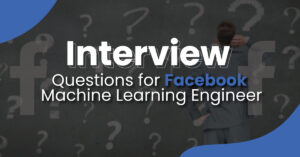
Coding interview for Facebook Machine Learning Engineer
Coding interviews will take place both before and during the onsite interviews. Facebook’s engineers (from various disciplines) use code to solve some of the company’s most difficult problems. As a result, all of the company’s new engineers must have solid foundational coding skills.
So, to assist you in organizing your preparation, we’ve included a summary of Facebook’s most common coding question categories below. This data is based on an examination of Glassdoor data for Facebook software engineer interviews.
- Strings and arrays (38 percent of questions, most frequent)
- Trees and graphs (29 percent )
- Programming Dynamically (18 percent )
- Sort / Search (9 percent )
- Lists that are linked (4 percent )
- Queues / Stacks (2 percent , least frequent)
Here are some example for Facebook machine learning engineer coding interview:
- Arrays and Strings (38 percent of questions, most frequent)
- “Given an array nums of n integers with n > 1, return an array output with output[i] equal to the product of all nums elements except nums[i].”
- “You may delete no more than one character from a non-empty string s. Check to see if you can make it a palindrome.”
- “Implement next permutation, which rearranges numbers into the lexicographically next greater number permutation.”
- “Given a string S and a string T, find the smallest window in S that contains all of the characters in T in O(n) complexity.”
- ( ) “Group the anagrams together given an array of strings.”
- Graphs and trees (29 percent )
- “Given a binary search tree’s root node, return the sum of all nodes with values between L and R (inclusive).”
- ( ) “Given a Binary Tree, convert it to an In-Place Circular Doubly Linked List.”
- “Implement a binary search tree iterator (BST). The root node of a BST will be used to initialise your iterator.”
- “Given a binary tree, compute the length of the tree’s diameter.”
- “Serialize and deserialize a binary tree”
- Adaptive Programming (18 percent )
- “Given a list of non-negative numbers and a target integer k, write a function to check if the array contains a continuous subarray of at least size 2 that sums up to a multiple of k, that is, sums up to n*k where n is also an integer.”
- “Assume you have an array with the ith element representing the price of a given stock on day i. If you were only allowed to complete one transaction (i.e., buy one and sell one share of stock), create an algorithm to maximise your profit.”
- “Given a string (s) and a pattern (p), implement regular expression matching with ‘.’ and ‘*’ support.” ) “You are given a set of non-negative integers (a1, a2,…, an) and a target (S). You now have two symbols: + and -. As the new symbol for each integer, select one from + and -. Determine how many symbols can be assigned to make the sum of integers equal to the target S.”
- Search / Sort (9 percent )
- “We have a list of plane points. Find the K points that are closest to the origin (0, 0).”
- “Write a function to compute the intersection of two arrays.”
- “Given an array of meeting time intervals consisting of start and end times [[s1,e1],[s2,e2],…], calculate the smallest number of conference rooms required.”
- Related lists (4% of the total)
- “A linked list is defined in such a way that each node contains an additional random pointer that can point to any node in the list or to null. A deep copy of the list is returned.”
- “Given a singly linked list L, reorder it to: L0?Ln?L1?Ln-1?Ln-2?…”
Also Read : How to Become an Amazon Data Analyst
Interview for system design for Facebook Machine Learning Engineer

Facebook, Instagram, and Whatsapp all have one billion or more monthly active users. As a result, Facebook machine learning engineers must be able to comprehend and work with highly scalable systems. The coding problems we’ve discussed so far usually have a single best solution. However, system design questions are typically more open-ended and feel more like a discussion.
This is the part of the interview where you want to demonstrate your ability to be both creative and structured. According to Glassdoor data, the following are the most frequently asked system design questions in Facebook machine learning engineer interviews.
The system design questions you’d face as a Facebook machine learning engineer should be similar to those asked in standard Facebook software engineer interviews. As a result, we recommend that you prepare with the questions listed below.
Facebook’s top ten system design questions
- What design elements would you include in Instagram / Instagram Stories?
- Facebook, how would you design it?
- How would you design Facebook Messenger? How would you design Facebook’s live comment update on posts?
- How would you design a collaborative online editor? (e.g. Google Docs)
- How would you go about designing a typehead feature? (e.g. Google search autocomplete)
- What changes would you make to Twitter’s trending topics?
- How would you go about designing a distributed Botnet?
- How would you design a system capable of processing millions of card transactions per hour?
- How would you create security for Facebook’s corporate network from the ground up? (Security team interview)
An Interview for Machine Learning Design for Facebook Machine Learning Engineer
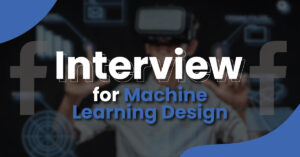
All of the interviews we’ve gone over so far have a lot in common with the Facebook software engineer interviews. However, the machine learning design interview is only for candidates for Facebook machine learning engineer positions.
Facebook’s various apps have massive data sets and billions of users. Because of the size and complexity of these systems, there are numerous opportunities to apply machine learning to real-world problems. That is, in general, what you will be asked to do during the machine learning design interview.
The questions will be similar to system design questions in that you will be asked to outline a high-level approach for a system or problem. The main difference is that you will be expected to create a machine learning solution.
Facebook users have asked about machine learning design.
- Create a model that can determine whether an image contains a cat or a dog given images of cats and dogs (source: Facebook guide)
- Predict the likelihood of a user clicking on a specific post (source: Facebook guide)
- Predict whether a user is likely to find a given ad relevant and useful (source: Facebook guide)
- Create a newsfeed with machine learning (source: Rahul Agarwal)
- How would you design, train, and deploy a system that detects whether multimedia and/or ad content violates terms of service or contains offensive content? (From Glassdoor)
Behavioral assessment for Facebook Machine Learning Engineer
You wil
l be asked behavioral or “resume” questions during the behavioral interview for Facebook Machine Learning Engineer, as well as at the start of your other interviews. These questions are about your previous work experience, qualifications, and motivation for applying to Facebook. In other words, it’s a way for your interviewer to learn more about you.
Behavioral questions provide an excellent opportunity to share your story, highlight your key qualifications, and demonstrate your alignment with Facebook’s values and culture. You should also be prepared to go into technical detail about the projects on your resume, as well as talk about the types of projects you’d like to work on in the future. Clearness in these areas will help you make a strong impression in behavioral interviews.
According to Glassdoor data, we’ve listed several examples of behavioral questions that were asked in either Facebook machine learning engineer or Facebook software engineer interviews. This should provide you with a good list of practice questions to begin your preparation. Please keep in mind that we have edited the language in a few places to improve the clarity or grammar of the questions.
Facebook behavioral interview questions for Facebook Machine Learning Engineer
- Please tell me about yourself.
- Why is Facebook used?
- Please provide an example of a project in which you used data and machine learning.
- Tell me about a time when you faced a challenge and how you overcame it.
- Tell me about a recent or favorite project you worked on and some of the challenges you encountered.
- Tell me about your proudest professional achievement.
- Tell me about a time when you struggled to collaborate with one of your coworkers.
- Tell me about a time when you had to resolve a team conflict. Tell me about a time when you received constructive feedback.
- Tell me about a time when you had to step up and take charge of others.
- Tell me about your worst boss and why you disliked them.
Facebook Machine Learning Engineer Salary
According to levels, Facebook Machine Learning engineer base salaries range from $184,240 to $206,190.
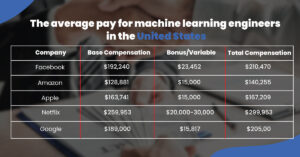
Facebook Machine Learning Engineer salary in India range from 63,37,706 to 67,54,450.
What are the salary components for Facebook Machine Learning Engineers?
Base Compensation for Facebook machine learning engineer: The base compensation, also known as the base salary, is the fixed salary you will receive as part of your role. If you receive a salary increase, it is the base pay that rises.
Bonus for Facebook machine learning engineer: A bonus is a component of your base compensation that is often tied to your performance. Bonuses can range from ten percent to thirty percent of your base salary.
Stock Options for Facebook machine learning engineer: Facebook provides Restricted Stock Units that have a vesting period of up to four years.
Facebook Provides Additional Benefits to Facebook Machine Learning Engineer
In addition to the salary, the following benefits are available to Facebook machine learning engineer, making it one of the most popular companies among engineers:
- Medical, vision, and dental insurance are all available.
- Wellness compensation
- Maternity and paternity leave
- Adoption and surrogacy assistance are examples of family planning assistance.
- Retirement plans and tax advice
- Insurance for life
- Legal assistance
- Every five years, employees are given a paid 30-day vacation.
Conclusion – Facebook Machine Learning Engineer
Machine learning (ML) can be thought of as a method of recognizing and drawing conclusions from data connections. Every day, machine learning engineers and researchers at Facebook, Messenger, Instagram, WhatsApp, and Oculus collaborate to solve technical challenges like these.
Becoming a Facebook Machine Learning Engineer is a bit tough, but no worries we got you covered. This blog will help you to get what you need in order to become a Facebook machine learning engineer.
Frequently Asked Questions
What do Machine Learning Engineers do?
A machine learning engineer creates AI algorithms to automate specific models, usually predictive models. An ML engineer also creates scalable solutions and tools for these models to track data metrics efficiently.
Is working as a machine learning engineer a good job?
Yes, machine learning is a viable career option. According to a 2019 Indeed report, Machine Learning Engineer is the top job in terms of salary, job growth, and overall demand.
What abilities does a machine learning engineer require?
Qualifications for Becoming a Machine Learning Engineer
- Mathematical Applications Math is a valuable skill to have in the arsenal of a machine learning engineer.
- Fundamentals of Computer Science and Programming
- Data modeling and analysis.
- Networks of neurons
- Natural Language Processing (NLP).
- Communication abilities
What do machine learning engineers get paid?
Machine Learning Engineer salaries in India range from 3.5 Lakhs to 21.3 Lakhs per year, with an average annual salary of 7.5 Lakhs. Estimated salaries are based on 1.5k salaries from Machine Learning Engineers.
Can a fresher become a machine learning engineer?
Obviously. A fresher can get a machine learning job if he or she possesses the necessary skills. To have a successful career in the machine learning landscape, newcomers must plan how they will perform well and collaborate closely with people who have extensive experience in the same field.
Which of the FAANG companies has the most difficult interviews?
Amazon has the most difficult interview process of any of the FAANG companies. It’s very impersonal, and they drill you so much on behavioral questions that Google and Facebook interviews feel especially nice in comparison. Look for official data if anyone publishes it, not the anecdotes you’ll find here, for “most difficult to get into.”
When did Facebook begin to use machine learning?
These are some of Facebook’s recent victories, but the company has been developing machine learning algorithms for over a decade: In 2006, it attempted to use machine learning technology on the news feed for the first time.
Is it more difficult to interview on Facebook or Google?
Facebook had the lowest rating. Google employees were most likely to describe the interview process as “difficult” or “very difficult” (49 percent ). Microsoft came in second place with 47 percent. Amazon employees rated their interviews as “easy” or “very easy,” with 30% saying the interview was “easy” or “very easy.”
What kind of AI is used in Facebook?
When we say “Facebook,” we’re referring to the social media platform Facebook. Because Facebook remains the primary engine for how Meta employs AI, it is a topic worth investigating. Meta AI is the organization within Meta that oversees the company’s artificial intelligence work (formerly Facebook AI).
Is a Facebook interview challenging?
Facebook ranked first on Glassdoor’s list of the best companies in 2018. If you want to work for the tech giant, you’ll have to go through a rigorous interview process. Glassdoor reviewers rate the difficulty of interviews at 3.2 out of 5.

